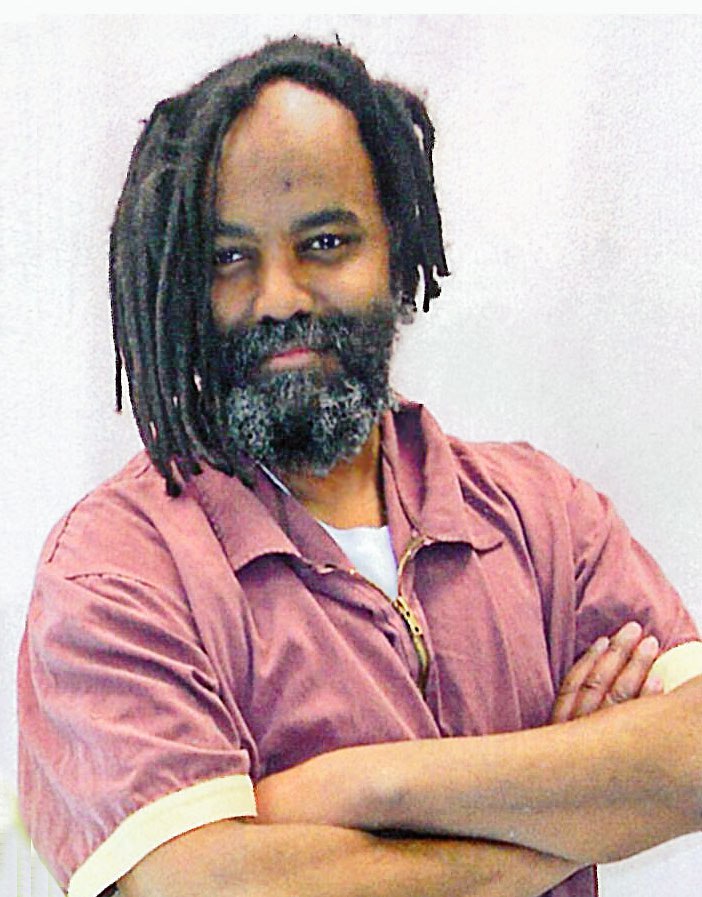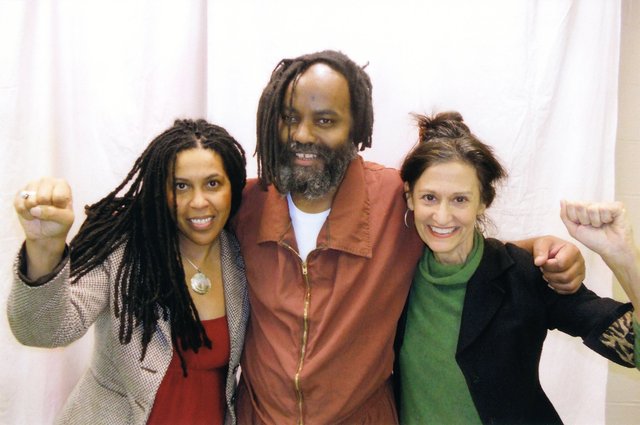Mumia Abu-Jamal, one of the best-known political prisoners in the United States, has been unjustly imprisoned in Pennsylvania for nearly 35 years. On December 9,1981, Mumia was driving a taxi in downtown Philadelphia. He saw a policeman brutally beating his brother with a metal flashlight. Mumia rushed to the scene. The cop shot him in the chest, and Mumia was found sitting on the sidewalk in a pool of his own blood. The cop was nearby, dying of a gunshot wound. The policemen who arrived knew Mumia as a revolutionary journalist and former Black Panther and beat him and arrested him on charges of murdering the policeman.

Mumia was carrying a self-protection weapon as a night cab driver. But the bullet extracted from the murdered officer was never connected to Mumia's gun. They never tested his gun to see if it had been fired, nor did they test his hands to see if he had fired a gun recently. In fact, the coroner's report identified the fatal bullet as a different caliber than Mumia's gun, but the jury never saw this report. Police claimed that Mumia stood over the fallen officer, shooting him repeatedly but only once, in the head. However, the photographs that appeared years later showed no marks on the sidewalk of the bullets that supposedly failed.
In his 1982 trial, Mumia was denied the right to serve as his own lawyer and excluded from the courtroom for half his trial. A racist jury selection process resulted in an almost completely white jury. And a court reporter heard the judge say he was going to help police fry the black man.
They ignored and never presented the jury with witnesses who said they had seen a different person shoot and flee the scene. The prosecution claimed that Mumia had confessed - a confession the cops only "remembered" a few months after the incident. However, the jury only heard the false story of the confession and never saw the police report officer who said Mumia had made no statement. Not surprisingly, under these circumstances, Mumia was sentenced to death.
Documents obtained for Mumia's 1995 appeal process showed that he had been under government surveillance since he was 14 years old. A protest leader in high school, he became a young information minister for the Black Panther Party in Philadelphia. In the following years, he attended college and became a respected radio journalist in Philadelphia.
Without being intimidated by his imprisonment, Mumia continued and developed as a journalist behind bars, writing a syndicated weekly column and writing and publishing several books. When the governor signed an execution order in 1995, a rapidly growing mass movement was formed to support Mumia's execution. Still, Mumia remained confined to an isolation cell the size of a bathroom 22 hours a day, and only allowed to see his family and lawyers through a plexiglass window. His refusal to capitulate to all this is an example of the courage, dedication and revolutionary potential of the millions of prisoners in the United States, and it served as an inspiration to large numbers of people.

Mumia's struggle for freedom, which has been fought around the world, radicalized a new generation of students. This movement played an important role in changing the minds of many people, not only about the death penalty, but the injustices of the system as a whole.
Mumia spent a quarter of a century in solitary confinement on death row until the courts overturned his death sentence while reaffirming his conviction, leaving him to face the prospect of life without parole. Throughout all this, Mumia has continued to denounce in audio and written comments the crimes against humanity perpetrated by this system.
Congratulations @marnav! You have completed some achievement on Steemit and have been rewarded with new badge(s) :
Click on any badge to view your own Board of Honor on SteemitBoard.
For more information about SteemitBoard, click here
If you no longer want to receive notifications, reply to this comment with the word
STOPDownvoting a post can decrease pending rewards and make it less visible. Common reasons:
Submit